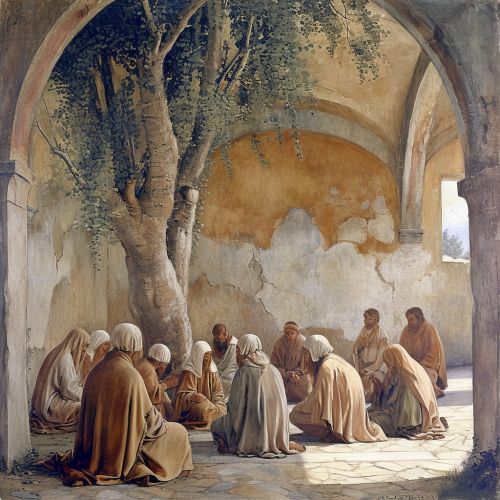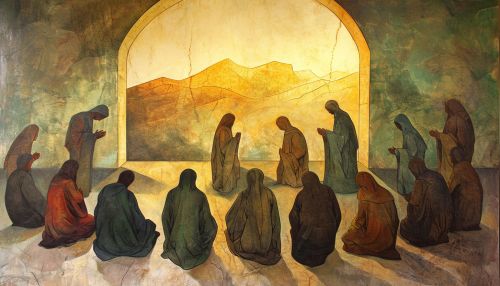Christianity
Origins and Early History
Christianity is a monotheistic religion based on the life and teachings of Jesus of Nazareth, as presented in the New Testament of the Bible. It is the world's largest religion, with over 2.4 billion adherents, known as Christians. Christians believe that Jesus is the Messiah (Christ) prophesied in the Old Testament, who through his crucifixion and subsequent resurrection, offers salvation to humanity.


The origins of Christianity can be traced back to 1st century AD in the Roman province of Judea (present-day Israel). The religion emerged from the Jewish tradition, and the first Christians were all Jews who had come to believe that Jesus was the promised Messiah. The earliest Christian communities were thus essentially sects of Judaism, and they still observed the Mosaic dietary laws and the Sabbath.
The spread of Christianity was facilitated by the extensive network of Roman roads and the peace that the empire had brought to the Mediterranean world. The message of Christianity was spread around the Mediterranean Sea by the Apostles, particularly Paul, who took advantage of this network to travel extensively, establishing small Christian communities wherever he went.
Teachings and Beliefs
Central to Christian faith is the belief in Jesus as the Son of God and the Messiah. Christians believe that Jesus, as the Messiah, was anointed by God as savior of humanity, and hold that Jesus' coming was the fulfillment of messianic prophecies of the Old Testament. The Christian concept of the Messiah differs significantly from the contemporary Jewish concept.
The cornerstone of Christian theology is the belief in the Holy Trinity, which holds that God is one but comprises three persons: the Father, the Son (Jesus Christ), and the Holy Spirit. This is a unique concept to Christianity and is not found in either Judaism or Islam.
Christianity teaches that Jesus was both divine and human, and that he was born of the Virgin Mary, suffered under Pontius Pilate, was crucified, died, and was buried. On the third day, he rose again, ascended into heaven, and will come again to judge the living and the dead.
Christians believe in the immortality of the human soul and that after death, the soul will be judged by God and rewarded with eternal life or eternal damnation. This belief in an afterlife is also a departure from Jewish teachings, which focus more on life here and now.
Denominations and Sects
Christianity is divided into several major branches, each with its own distinctive beliefs and practices. The three largest branches are the Roman Catholic, Eastern Orthodox, and Protestant churches.
The Roman Catholic Church, headed by the Pope, is the oldest and largest branch of Christianity, with over 1.2 billion members worldwide. The Catholic Church traces its history directly back to the Apostles, particularly Peter, who is considered the first Pope.
The Eastern Orthodox Church, which is primarily found in Eastern Europe and Russia, also traces its roots back to the Apostles and shares much in common with the Catholic Church. However, it differs in its view of the Pope, rejecting his claim to universal jurisdiction over all Christians.
Protestantism emerged in the 16th century as a reaction to perceived corruption and doctrinal errors in the Catholic Church. There are many different Protestant denominations, but all reject the authority of the Pope and emphasize the importance of reading the Bible and developing a personal understanding of its teachings.
There are also many smaller Christian groups, including the Oriental Orthodox churches, the Church of the East, and numerous independent and non-denominational churches.
Impact on Society and Culture
Christianity has had a profound impact on the development of Western civilization. It has influenced the course of history, politics, philosophy, art, and science, and continues to be a major influence on the world today.
Christianity played a crucial role in the preservation and transmission of classical learning during the Middle Ages, and the rise of the modern university system can be traced back to the schools and universities established by the Church.
In the realm of art, Christianity has been a major source of inspiration for artists throughout history. From the great cathedrals of Europe to the religious paintings of the Renaissance, Christian themes have been a dominant force in Western art.
Christianity has also played a significant role in social reform movements, such as the abolition of slavery and the civil rights movement in the United States. Many Christians have been leaders in efforts to promote social justice and human rights.
